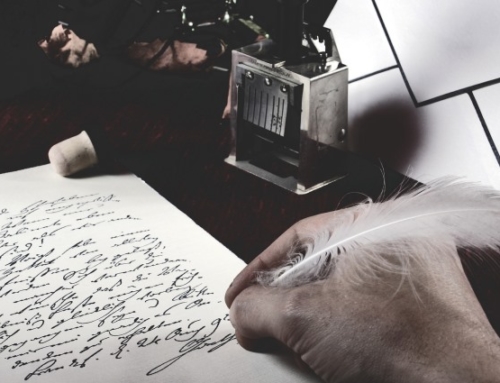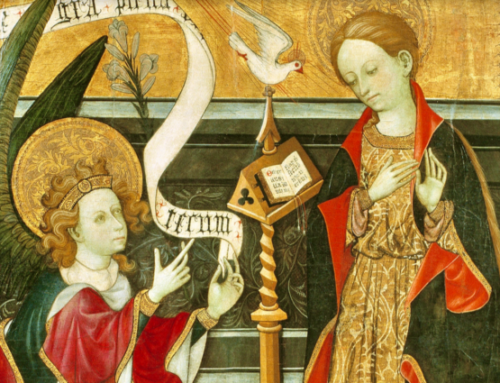 In this dull utilitarian age, there seems little less useful than poetry. What good is it? There are few who get rich writing or publishing poetry, and when it comes to practicality, it is practically good for nothing.
In this dull utilitarian age, there seems little less useful than poetry. What good is it? There are few who get rich writing or publishing poetry, and when it comes to practicality, it is practically good for nothing.
On second consideration, however, reading and writing poetry is extremely practical, and because our techno-utilitarian age is so focused on usefulness and economy, poetry is more vital than ever.
Where there is famine, food is precious.
So consider for a few moments the practicality of poetry. Reading and writing poetry is good for you. It’s good for your mind. It stretches your linguistic faculties in ways that pay off.
Here is why reading poetry is good for you: First of all, poetry is emotional. It engages that organ which is most underused in academia—the heart. Reading poetry is not simply about understanding the rhyme scheme of an Alexandrian sonnet or being able to write a paper on the theological conceits of the metaphysical poets. A poem is first and foremost an expression of emotion. You have to engage your feelings when you read a poem or you haven’t read the poem. This is important because academia wants you to be objective and scientific all the time. The poet proclaims, “Forget the science already! We want passion, not pie charts!” While poetry engages your emotions it does so in a rational and structured way. Poetry is smart. It dances a formal dance around the emotions and engages them while also engaging your brain. Emotion on its own is mere sentimentality. Emotion in classical poetry fuses the intellect with emotion in a high and noble human experience.
Secondly, reading poetry expands your linguistic capabilities. On the simplest level it will widen out your vocabulary, but more importantly, it will widen out the way you think. Poetry takes your thinking processes outside the box. You are forced to work out the meaning of complicated passages and puzzle over obscure references. “What on earth does Eliot mean when he writes, “Lady the three white leopards sat under the juniper tree in the cool of the day having fed to satiety on my legs, my heart and my liver?” This is hard but rewarding work, and as you struggle you discover that your mind is firing on cylinders you did not know existed. Your language skills are being stretched, your ability to understand and articulate is taking a huge jump… and that’s an exciting thing.
Thirdly, reading poetry is good for you because it stretches your imagination. To get a poem you have to step outside your narrow, little world and see the world from a new perspective. The poet makes connections that nobody else makes, and in order to understand you must get your mind out of a rut and double-check your understanding of reality. What did Emily Dickinson see when she observed, “A narrow fellow in the grass occasionally rides…”? Oh I see! It’s a snake. Or is it? As your imagination is stretched your perception of reality widens out. Things are not what they seemed. They are more than what you thought they were, and this shake-up of your preconceptions is what education is all about.
Reading poetry is hard, but writing poetry is harder, and let’s get this free verse thing out of the way from the beginning. Robert Frost said, “Writing free verse is like playing tennis without a net.” It is the easiest thing in the world to write free verse. Seventh-grade girls do it all the time. Just as you’re not allowed to be a hermit until you’ve been a monk for twenty-five years, so you shouldn’t really write free verse until you’ve mastered all the different kinds of formal verse.
So write poetry that has rhythm and rhyme. Write sonnets and terza rima. Write a ballad and a villanelle and an ode or a sestina. Writing formal poetry is practical in three ways.
First, as in reading poetry, writing poetry puts you in touch with your emotions. You must write a poem about something you are passionate about. As you do, you are forced to examine your emotions and express them in a way which not only communicates a message, but communicates the emotion of the message. The final couplet or stanza should bring the reader to an “Aha!” moment in which enlightenment and emotion are fused. That’s hard to do, but as you learn to do it you learn to work with emotion and manage it rather than simply being swept up by the emotions of the moment. Thus you learn that channeled emotions are far stronger, long-lasting, and effective than the mere sweep of overwhelming emotions. Emotions that are fused with an exercise of the intellect are most powerful of all.
Secondly, as you write poetry you are forced to think in creative and mind-bending ways. The poet is a person who makes unusual connections. Anybody can see a black dog in a white collar, but a poet sees a priest dressed in black wearing a white collar that binds him and liberates him all at once. He sees a black dog who serves a white God which is “dog” backwards and knows the priest is both a black dog and a backward god at once. This is why the poets were always also jesters. They were jokers. Like comedians, they saw connections nobody else saw, and as they made those connections the perceptions of their audience were opened up, “Aha!” and they saw the world, truth, and beauty in a fresh and startling way.
The third practical reason to write poetry is that in the very process you will learn the flexible quality of language and the startling way that the forms of poetry do not lock you down, but open you up. What I mean is this: Let us say you are writing a love poem about the girl you are going to marry and the fact that you are about to buy her an engagement ring. You are biting your pencil and scratching your head searching for a word that rhymes with “jewel.” You come up with “cruel.” Suddenly your imagination takes a leap into the dark! Perhaps this love so golden and so sweet is cruel? How is it cruel? Am I cruel? Is she cruel? Is love cruel? You see? The process of finding a rhyme is the very thing that makes poetry such a linguistically creative activity.
The last thing is this: Poetry uses metaphors for meaning. Reading and writing poetry helps you see that beneath the surface of everything there is a deeper meaning and significance. Poetry makes you dig for that meaning and helps you express that meaning. In a world that seems increasingly meaningless, poetry helps you dig deep.
Why is it worth it? Not because you will gain fame and fortune by writing poetry. Poets starve. Because if you are going to do anything with your brain in the future you will need to communicate, and if you are going to communicate you will have to use language, and if you use language creatively and with skill your abilities in whatever career you choose will be a step ahead of all those other cretins who wasted their time playing video games.
Writing poetry will help you engage with your emotions in a smart way, and that will help you know yourself and understand others. Writing and reading poetry will nurture your imagination, and no matter what your career, a bright and active imagination will be a bonus. Finally, writing and reading poetry will widen out your experience, help you to see the big picture, help you find meaning in a chaotic world, and make it seem like you actually know what life is all about.
The Imaginative Conservative applies the principle of appreciation to the discussion of culture and politics—we approach dialogue with magnanimity rather than with mere civility. Will you help us remain a refreshing oasis in the increasingly contentious arena of modern discourse? Please consider donating now.
The featured image is “Girl With a Book,” painted between 1850 and 1899, by José Ferraz de Almeida Júnior. It is in the public domain and appears here courtesy of Wikimedia Commons.







As a songwriter I completely agree, although poetry is much harder, stripped away from a musical background. The only thing I don’t like about a poetry is that sometimes when I read it I feel like I don’t have the prior knowledge of the references made.
Wonderful essay. And with regard to the comment from Mr. Ingraffia, I would like to note that the great thing about poetry (and a point implied by the essay) is that even if you don’t “get” all the references or discern the “real meaning” of the poem, the exercise of struggling to see what the author might have meant is enough to set your neurons firing in ways that they would not have fired otherwise. It is frustrating to be thwarted in your attempt to understand the poem, but the effort that results in that frustration brings its own ample rewards.
I call what I write reflections in verse, mostly inspired by a memorable word or line I’ve heard from a conversation or sermon. As you say, it’s very worthwhile as a hobby or pass-time.
Fr. Longenecker, can you recommend poets and their work to begin with?
Thank you for explaining the different benefits of reading and writing poetry. I love how you stated that poetry helps to stretch your imagination. I will have to take up reading poetry.